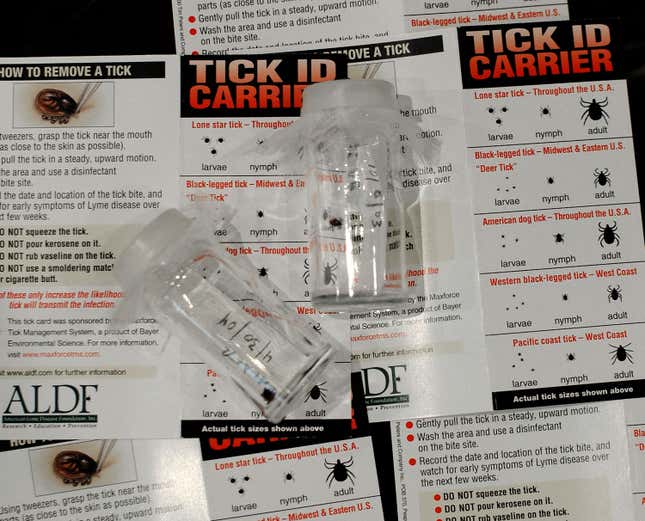
The prevalence of a red meat allergy—caused by a tick-borne illness—is rising quickly in the United States, according to the Centers for Disease Control (CDC).
According to new federal health data, 110,000 Americans have developed the novel allergy since 2010, caused by a disease known as Alpha-gal syndrome. However, a new report suggests that that true number could be as high as 450,000, and the CDC estimates that the number of cases is growing by about 15,000 each year.
The allergy can be life-threatening, with symptoms like nausea, diarrhea, hives, and possible anaphylaxis emerging in the hours after consuming meat from mammals, including beef, pork, lamb, venison, and rabbit. It does not affect birds, fish, or seafood.
There is no known cure, and the CDC report found that 42% of doctors in a survey of 1,500 had never heard of the illness, raising concerns about treatment.
On a per capita basis, the US is the second-largest consumer of beef in the world, with 81.7 pounds per person annually, just behind beef-producing powerhouse Argentina. However, domestic red meat eating habits have actually gone down since a 1976 high of 129.6 pounds per capita.
What is Alpha-Gal syndrome?
Alpha-gal is an illness most often spread by lone star ticks, which feed on cows, deer, goats, rabbits, and pigs before latching on to humans. Despite the Texas-themed name, the ticks are most often found in the Eastern and Southern US, especially in Long Island and Connecticut.
Specifically, Alpha-gal is the name of a sugar molecule found in those types of mammals, and when ticks move from one to humans, the ticks can transmit that molecule along through their saliva.
Then, if contaminated saliva reaches the human body, the body treats it as a foreign substance and the immune system will produce antibodies that make humans allergic to it. Which effectively means the infected human body will become allergic to eating meat from any of those animals.
Related stories:
🦠 Lyme disease is spreading faster than ever and humans are partly to blame
🍖 The World Health Organization is expected to say red meat is linked to cancer